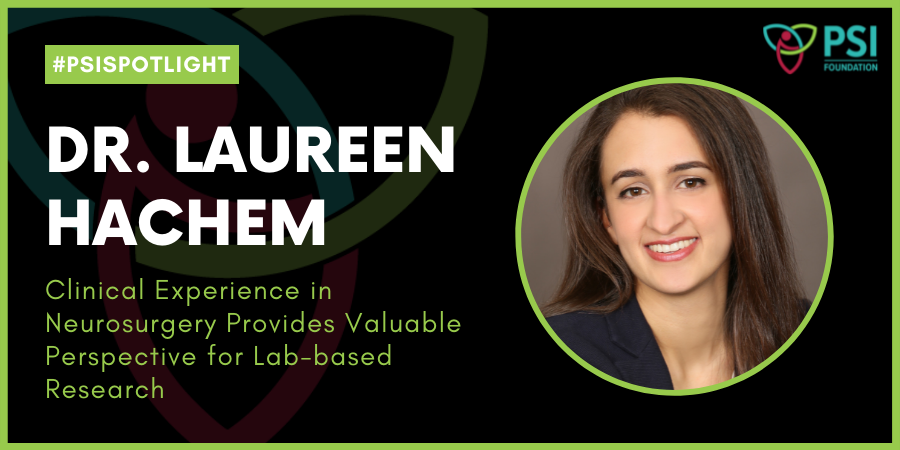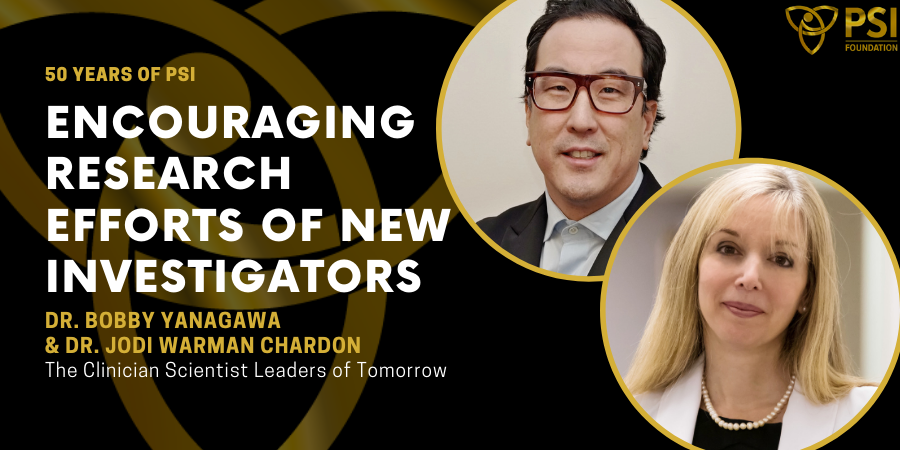Dr. Laureen Hachem has long been interested in neurosurgery and the potential of endogenous stem cells to repair spinal cord injuries. She started her research career in her last year of high school, volunteering in the lab of Dr. Charles Tator, a researcher and neurosurgeon at Toronto Western Hospital, and she continued working in Dr. Tator’s lab throughout her undergraduate and medical school education at the University of Toronto.
In 2017, she graduated from medical school and started the Toronto Neurosurgery Residency Program, which combines clinical and lab-based research training.
“When I’m on clinical service, I see questions or problems that I can critically analyze and think about how I would address them in a systematic, hypothesis-generating way,” says Dr. Hachem. “When I go back to the lab, I have an important perspective because I’ve seen what is relevant and feasible in the clinic, and the patient is always top of mind.”
In 2020, she started her PhD research, supervised by Dr. Tator and Dr. Michael Fehlings, continuing her studies of endogenous stem cell regeneration, with the aim of identifying therapies for spinal cord injury.
She had previously found that high levels of the neurotransmitter glutamate activate the AMPA receptor, which stimulates a response from endogenous stem cells. With a PSI Resident Research Grant, she began to look for clinically relevant methods to therapeutically activate AMPA receptors to stimulate endogenous stem cell regeneration, focusing on a class of drug called ampakines.
Ampakines bind to AMPA receptors to improve neuron signalling and have been used in neurodegenerative diseases, such as Alzheimer’s disease and Parkinson’s disease and in the setting of opioid-induced respiratory depression, and have been tested in clinical trials for some neuropsychiatric conditions. But until Dr. Hachem’s research, ampakines had not been examined for their potential in enhancing endogenous spinal cord stem cell regeneration.
Dr. Hachem says that PSI’s Resident Research Grant is a valuable tool for residents to develop their own research program and gain valuable skills early in their career.
“Because this grant funds residents as principal investigators who are asking the questions and leading the work, it gives residents ownership over the project,” she says. “It sets you up for the future in developing your career as a scientist and your own research program.”
Repurposed drug shows promise for neural stem cell regeneration
With PSI funding, Dr. Hachem used a clinically relevant rodent model of spinal cord injury to test whether an ampakine drug could stimulate the AMPA receptor to regenerate endogenous stem cells and restore function.
She found that the treatment increased the growth and division of endogenous neural stem cells and the production of beneficial growth factors, which was associated with increased neuron survival, reduced inflammation and improved functional recovery.
Dr. Hachem notes that other more invasive strategies – including stem cell transplantation – have been studied to repair spinal cord injuries, and while they show promise, her research is the first to show that ampakines have potential as a less invasive approach to regenerate neural stem cells.
“With this work, we’re trying to harness the body’s own regenerative potential with these stem cells. Since the discovery of these cells, it’s been a long-standing question of how we can actually use them to repair the spinal cord after injury, and this study is a critical step in answering that,” she says. “The relevance of the therapy and translation to the clinic is always top of mind, and ultimately the goal is to translate this drug and this approach of positively modulating these cells to patients in a clinical trial.”
With these first results, Dr. Hachem is continuing her research to understand the mechanisms at work, as well as examining the use of ampakines in chronic spinal cord injury. She plans to continue pursuing lab-based research along with clinical care to build a career that ultimately improves care for patients with spinal cord injury.
“Funding from PSI Foundation allowed me to do this first critical experiment to show the feasibility and efficacy of the drug, as well as optimize drug dosing, timing and duration, and this work paves the way for larger scale studies and ultimately clinical translation to patients,” says Dr. Hachem. “This line of research has really grown with me throughout my medical education. Looking forward in the future, I aim to have a career where I can integrate my research interests with my surgical practice.”



